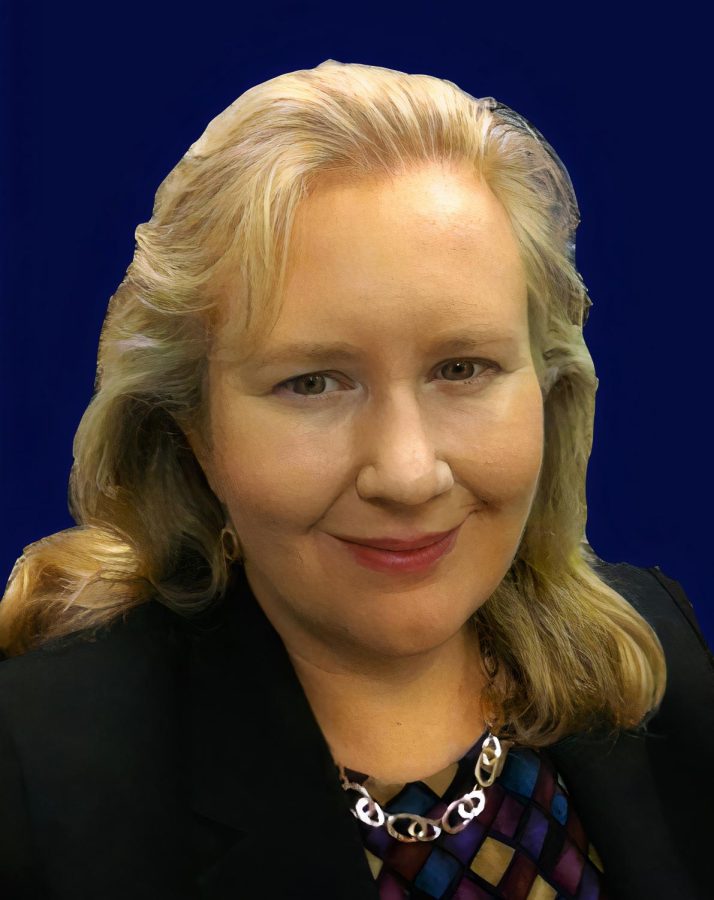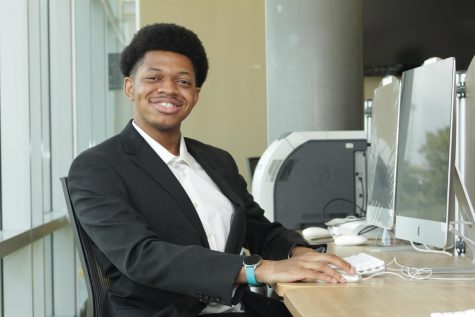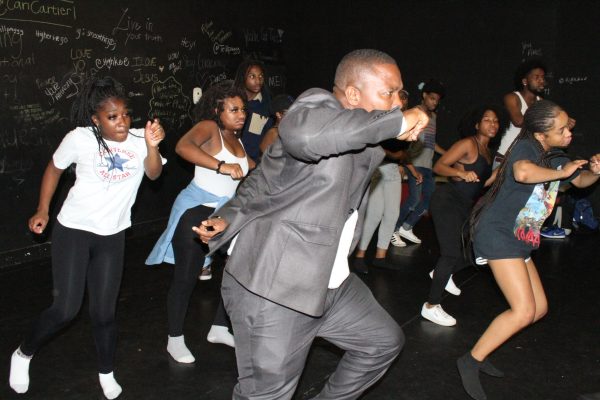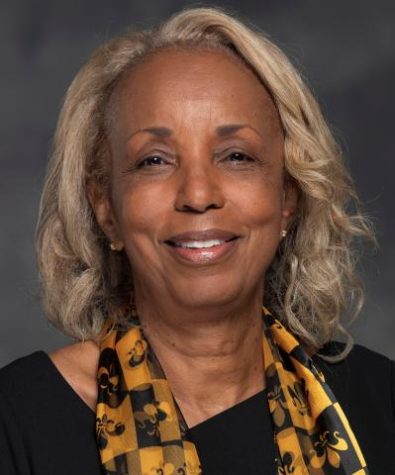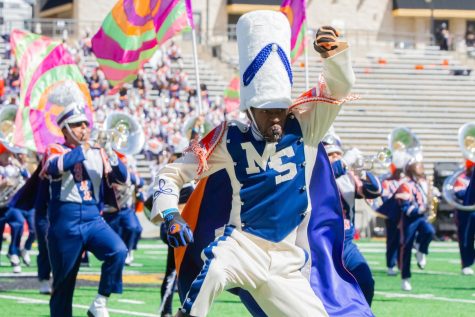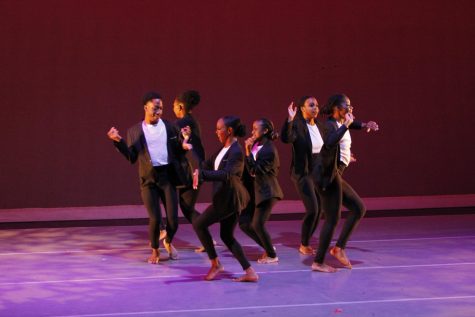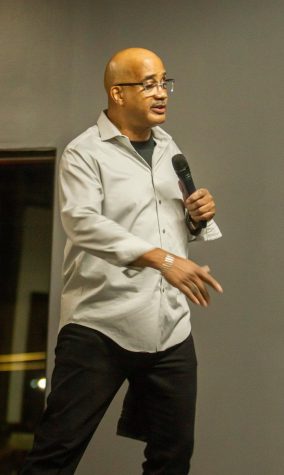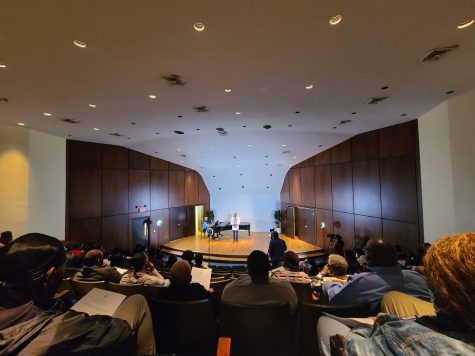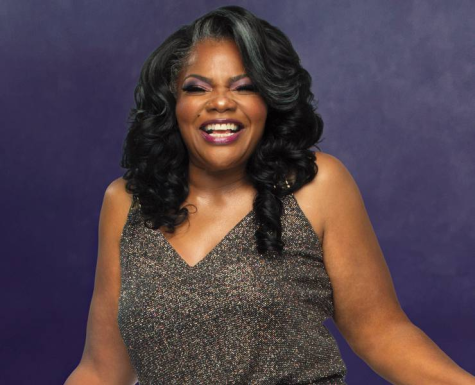Johnson provides musicality and musicianship to her department
Carly Johnson, Ph.D., Alabama State University’s Department of Music chair started her journey at Hornet Nation in 2006 , where she began teaching for several years before being promoted to the department of music chair in 2014, presently serving for over eight years due to the warm-hearted spirit and atmosphere ASU provides.
February 20, 2022
Some might say musicality can be learned, others believe only a select few are gifted the prodigious talent, keen eye and ingenious mindset. Alabama State University’s Department of Music chair, Carly Johnson, Ph.D., represents the latter by empowering, cultivating and investing in her students for future musical careers, represented by two President’s Award nominations.
“I really appreciate the students’ recognition,” Johnson said. “I have a great desire to help students realize their fullest potential and to set high standards for life after ASU. When they succeed, I consider that to be a success for the entire music program. So, as chair of the department, it is very important to me to connect with students, to build trust with students, and to mentor and guide students throughout their academic journey at ASU.”
Hailing from Youngstown, Ohio, halfway between Cleveland and Pittsburgh, Johnson was bestowed with a musical ear at a young age.
“I loved to sing in school when I was little and started taking piano lessons from a cousin when I was about five years old,” she said. “I started getting serious about music in high school when I found out that I could get a music scholarship to go to college.”
Once she learned her passion for music could actually be turned into an educational pathway in college, she attended Youngstown State University in Youngstown, Ohio, graduating with her Bachelor of Music degree in Music Education from the Dana School of Music in 1998.
Continuing to pursue her fiery devotion to music, Johnson received her Master of Music degree in Trumpet Performance from the University of Florida in 2000 and her doctorate from The Ohio State University in Trumpet Performance in 2005.
One year later, in 2006, Johnson’s journey led her to the Hornet Nation, where she began teaching for several years before being promoted to the department of music chair in 2014, presently serving for over eight years due to the warm-hearted spirit and atmosphere ASU provides.
“I felt really welcomed by the music faculty, staff, and students when I came down to do an interview,” she said. “It was apparent early on that the faculty in the music department cared a great deal about the success of the students and that the school was a very student-centered institution.”
Since her tenure at the university, Johnson believes her ability to create a safe space where her colleagues can creatively collaborate on ideas is essential to the department’s success.
“We’re a very progressive department, so if something isn’t working, we try a new approach or find an alternative solution,” Johnson said. “As chair, I try to get to know every single music major that we have in our program; not only knowing their names, but knowing their families, where they come from, and what their future dreams and aspirations might be.”
While Johnson aspires to know every single music major, everything was flipped upside down in the department of music due to the university shut down and the transition to the online format following the COVID-19 pandemic.
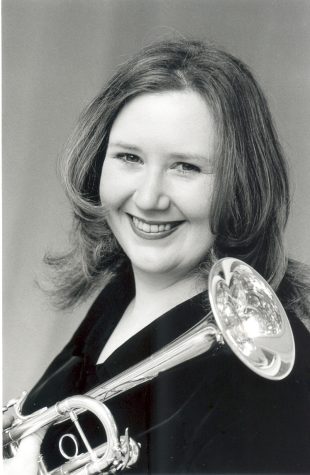
Typically, the department of music prides itself on allowing each music student to have the opportunity to grow and develop their craft with coaching and guidance from their applied instructors and ensemble directors. However, with the pandemic, Johnson and her colleagues had to take a different approach to the situation, converting everything to an online platform, still hoping to get that same result.
“At first, we weren’t quite sure what to do, but when it became apparent that the pandemic was going to be long-term, the faculty did a wonderful job of converting a lot of performance-based material and content into online formats,” she said.
According to Johnson, several musical faculty members financially invested in their students, buying the necessary equipment needed to ensure success, such as microphones, laptops, and lighting in their home offices and studios to try to make the experience as effective as possible.
“We made the decision pretty early on, after one of our recent graduates passed away from COVID-19, not to expose ASU students or faculty/staff to potentially dangerous aerosols produced when musicians sing or play a wind instrument indoors,” Johnson mentioned. “So faculty delivered much of their content online through Blackboard and graduating seniors made video recordings of their senior recitals which could be streamed online.”
Since ASU has returned back to its in-person setting, Johnson has committed each and every classroom to follow the protocols put in place by the CDC and the university. To limit the spread of the virus, the department has bought additional instruments and promotes social distancing via the reduced available seating in classrooms.
As community transmission rates are now starting to decline, the department of music has returned to in-person performances. Still, it keeps a very close eye on the case numbers in Montgomery to determine when it is safe to do so. The safety of their students, faculty, and staff has been their number one concern and priority throughout the pandemic.
Currently, the Tullibody Music Building is in a rapid movement as the department is in the process of recruiting students from all over the country, even including students from Nairobi, Kenya.
“I want to bring as many talented students into the music program as we can for next fall,” she said. “Second, we’re in the middle of conducting two faculty searches to bring in two new music professors for next fall, with one position focusing exclusively on expanding the use of music technology and teaching courses on music of the African diaspora, gospel/jazz music, and world music, which will expand our emphasis on teaching the music, culture, and history of the Black community, so that is exciting.”
The search for the best talent is ongoing at in the department of music. However, Johnson hopes her search for a $100,000 National Endowment Grant is awarded to the Piano for Children program at ASU.
“We’re keeping our fingers crossed as that would be a wonderful recognition for the music program and for the university,” she said.
From Ontario, Canada, to Santiago, Cuba, Johnson has appeared as a clinician, soloist, and chamber musician throughout the Americas and Europe, and most recently as a soloist with the Orquesta Sinfónica de Oriente, performing the Shostakovich Concerto in c minor for Piano, Trumpet, and String Orchestra, Op. 35. As a soloist, she was awarded 1st Prize in the trumpet division at the 2010 Susan B. Slaughter International Solo Brass Competition hosted by the International Women’s Brass Conference.
“I find that any opportunity to travel outside of the United States is always enlightening and eye-opening. I have always enjoyed learning about new cultures and connecting with people through music,” Johnson said. “… I wish more of our students could have travel-abroad, or study-abroad experiences, as it is just so important to develop a humanistic perspective.”
With Johnson’s well-acclaimed musical career, she hopes that her students will chase and accomplish their dreams as well, saying, “just go for it.”
“Many of our graduates have been accepted into very prestigious graduate schools across the country and are currently completing terminal degrees in music, so we fully support any ASU student who articulates that this is a career path of interest,” she said.
Johnson believes that it takes a huge commitment on their part to cultivate and develop the musical and professional skills necessary to win a fellowship or a scholarship for music study at the graduate level. She commends those several graduates of the music program who have gone on to earn their doctorates in music and have returned to teach at ASU.
Busy practicing for gigs or searching for them as most musicians do, Johnson hardly has any hobbies but loves learning how to code and catching up on all of the TV shows and movies that she missed from 1980 to 2020 during the pandemic.
The term “legacy” can mean various things to different people, but it means a generational wealth of high-quality education and programs for Johnson.
“Every faculty member at ASU is so unique and makes so many meaningful contributions to the academic programs on campus,” she said. “So I hope that my legacy will be one of someone who has tried their best to provide ASU students with the most equitable learning experience possible. Someone who has tried their best to foster connections and build bridges between ASU and our local community, and someone who has tried their best to pass on a love and appreciation for music to the next generation.”


